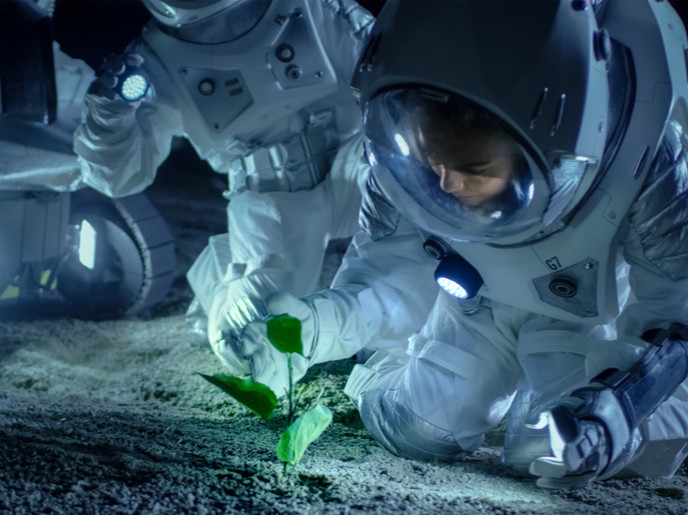Catching up with TIME SCALE: Taking space farming from sci-fi to reality
“Yes, all is going well!” Dr Kittang Jost enthusiastically begins, as she outlines how she and her team remain dedicated to realising viable crop and algae cultivation systems for human space exploration. “TIME SCALE partners are today developing hardware for higher plants and algae on the International Space Station (ISS) with the same long-term objective as for the TIME SCALE project [which officially ended in April 2018].” Whilst TIME SCALE (Technology and Innovation for Development of Modular Equipment in Scalable Advanced Life Support Systems for Space Exploration) had focused on improving plant-growing techniques in low gravity, the team have also recently been implementing their technology in ground facilities to gain knowledge and experience in advance of possible future human exploration beyond Earth. Commercialisation activities take off TIME SCALE had also been working on several products that could be commercialised, and indeed were, by the formal end of the project. “Two of our products, the Compact Gas Chromatography (GC) system from Interscience and the multi-ion analyser from CleanGrow are now on the market,” says Dr Kittang Jost. “In fact, the Compact-GC system comprises two commercial products, a thermal desorption module offering the capability of trace analysis of Volatile Organic Compounds and a programmable oven module that considerably speeds up analysis. The multi-ion analyser is capable of measuring 8 ions.” Additionally, a camera system for real-time plant health monitoring is also currently being followed up for a licensing agreement, and a possible spin-off company with a focus on water and nutrient management systems has been identified as having business potential for both Space and Earth applications, although these both have yet to be realised. To ISS and beyond The TIME SCALE project has prepared the ground for R&D on human space flight on the ISS and beyond. “We believe that the European Space Agency (ESA) should now use the ISS R&D platform to the fullest extent and fill in the knowledge and technology gaps of crop and algae cultivation. This would be done using a centrifuge allowing the simulation of fractional gravity (e.g. Lunar or Martian gravity),” says Dr Kittang Jost.
Countries
Norway



